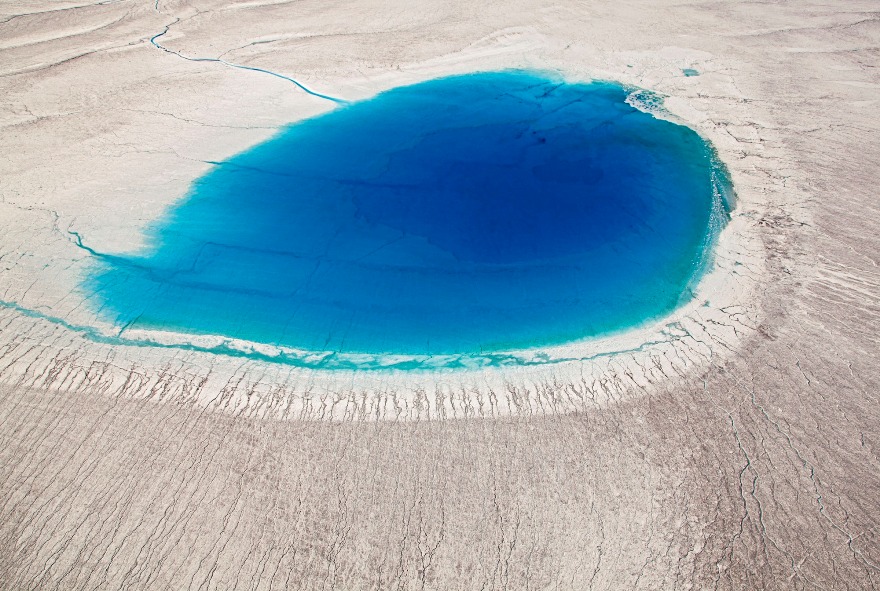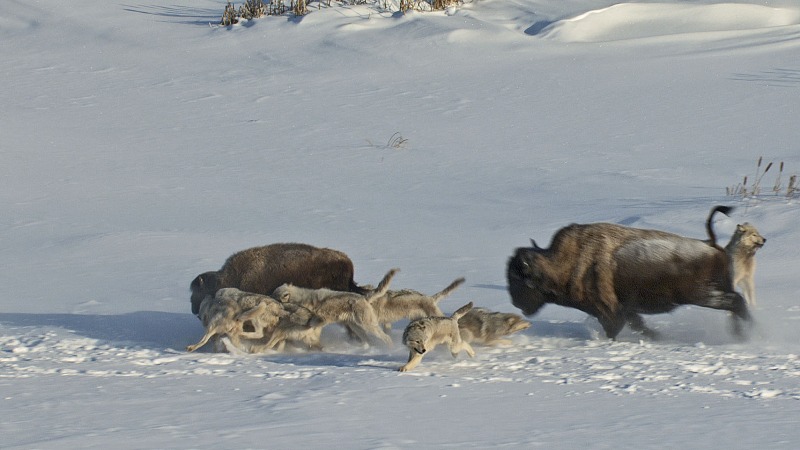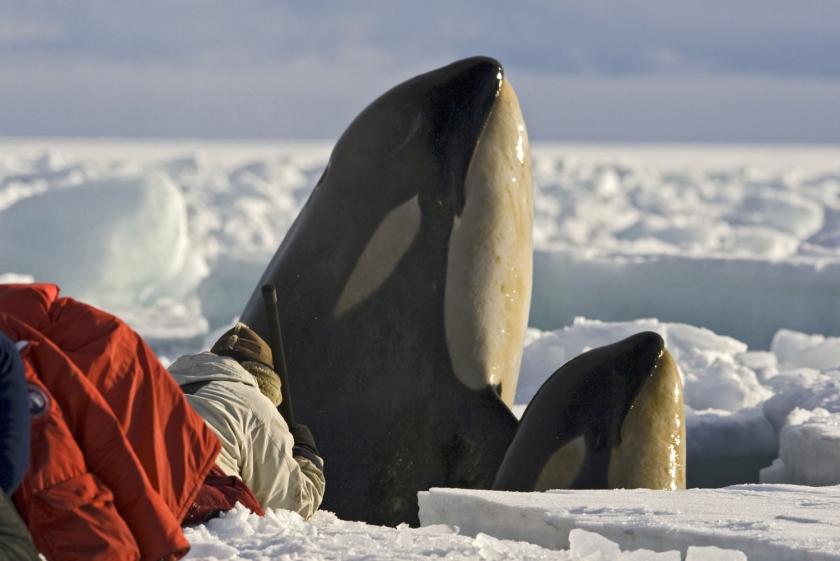It’s been suggested that, come the revolution, the best possible of outcomes to the question of who shall be Head of State is the man off the goggle box who for innumerable aeons has been telling us about the birds and the bees, the silverbacks and the dung beetles, the fishes and the flytraps. But could we not, on reflection, do a bit better than that? If God does exist he is surely the spit of David Attenborough. White of hair, persuasive of voice, sagacious of mien, he is now to be found, in his ninth decade, standing at the top and the bottom of the world, more or less simultaneously.
If you did not watch Frozen Planet, you must. If you did last night, you will be planning to watch it again, and again, possibly till the end of time (which thanks to global warming is, of course, sooner than we like to think). Attenborough for the most part lent his larynx on this one, supplying the ne plus ultra of to-camera top-and-tail monologues: he started at the North Pole and ended at the South Pole. The coldest regions of Earth, he explained, tend to bring out the superlatives. Thus we made the acquaintance of the fastest-flowing glacier, the biggest land mass, the biggest land predator, the fastest winds, the highest, driest and coldest territory on Earth - all thanks to another superlative: the most magnificent photography.
 The mountains of Antarctica, so often visualised in the Edwardian explorer's understated journal, rose up before your eyes. Here was a helicopter shot of the hideously slotted Beardmore Glacier up which Scott and his men miraculously schlepped. In Greenland, melt lakes (pictured right; image by Vanessa Berlowitz) overflowed, causing rivers to cut across the polar cap before plunging to the depths of the mile-thick ice. Bergs calved off the edge of glaciers and clattered spectacularly into the sea.
The mountains of Antarctica, so often visualised in the Edwardian explorer's understated journal, rose up before your eyes. Here was a helicopter shot of the hideously slotted Beardmore Glacier up which Scott and his men miraculously schlepped. In Greenland, melt lakes (pictured right; image by Vanessa Berlowitz) overflowed, causing rivers to cut across the polar cap before plunging to the depths of the mile-thick ice. Bergs calved off the edge of glaciers and clattered spectacularly into the sea.
It would be lovely to know that Roland Emmerich and James Cameron and Tinseltown’s various deities of CGI and 3D who fake up this stuff to line their pockets at the expense of gullible teenagers in multiplexes in Wisconsin might see these jaw-dropping images and blush. Yes, there is a modest amount of fakery. Thanks to the new facility of time-lapse photography, a camera can be parked in the wilderness for half a year and its film sped up to show a glacier heaving and convulsing at high speed like a regular river. The sea can freeze and melt, the sun rise and, six months later, fall at the press of a fast-forward button.
 But most of the footage is the product of supreme perseverance. The photographers, too myriad to mention, froze their bits off - clambering to the top of Mount Erebus, diving under the sea ice - to acquire the images of wildlife at these latitudes as they’ve rarely (or sometimes) never been seen before. In the north, male polar bears fought gladiatorially over a female, who submitted herself to the bloodied victor. Bison fended off a pack of wolves until one murderously clattered another into the ground in a frantic bid to escape (pictured above left). In the south, a pod of killer whales hunted a seal by collectively causing a wave motion to dislodge it from an ice floe. A sea lion chasing a penguin, but on land, where each moved in comical, slow-motion inefficiency.
But most of the footage is the product of supreme perseverance. The photographers, too myriad to mention, froze their bits off - clambering to the top of Mount Erebus, diving under the sea ice - to acquire the images of wildlife at these latitudes as they’ve rarely (or sometimes) never been seen before. In the north, male polar bears fought gladiatorially over a female, who submitted herself to the bloodied victor. Bison fended off a pack of wolves until one murderously clattered another into the ground in a frantic bid to escape (pictured above left). In the south, a pod of killer whales hunted a seal by collectively causing a wave motion to dislodge it from an ice floe. A sea lion chasing a penguin, but on land, where each moved in comical, slow-motion inefficiency.
You can make a desultory effort to pick holes. If it's science, it's the Reader's Digest version. While the polar bears were shagging, they might have soft-pedalled the Seventies porn mood music. Perhaps a little more explanation of why, as was claimed, the weather at the poles impacts on the rest of us would have helped. You’d quite like to know why and how crevasses open up. I have a still-lingering suspicion about the storyboarding of animal narratives - do they really do everything in the edited order? - but so total is the access afforded by high-definition cameras shooting from helicopters or light aircraft that it’s much easier to believe these things happen pretty much as presented. However, this is masterpiece television, at which you can do no more than gasp and gawp, high-five and huzzah, go down on your knees and give thanks for the licence fee.















Add comment